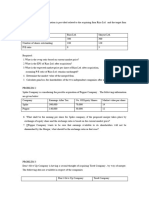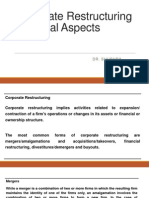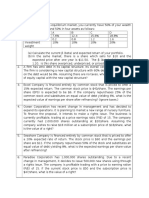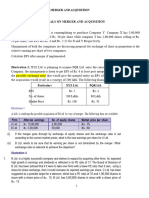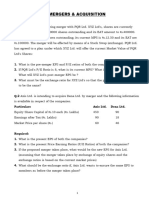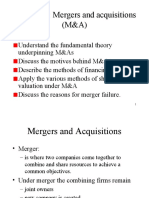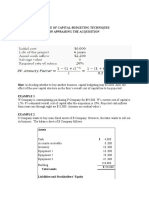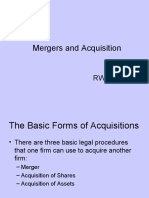0% found this document useful (0 votes)
18 views1 page9.1 Problem Set Questions
The document presents a problem set involving financial calculations related to mergers and acquisitions, including earnings per share (EPS) analysis, price-earnings ratios, and the impact of acquisition premiums. It also discusses the potential gains from an acquisition and the costs associated with cash and share offers. Additionally, it highlights the complications that arise when a target company's stock price increases prior to a merger bid, affecting the bidder's evaluation of potential gains.
Uploaded by
reminationtvCopyright
© © All Rights Reserved
We take content rights seriously. If you suspect this is your content, claim it here.
Available Formats
Download as PDF, TXT or read online on Scribd
0% found this document useful (0 votes)
18 views1 page9.1 Problem Set Questions
The document presents a problem set involving financial calculations related to mergers and acquisitions, including earnings per share (EPS) analysis, price-earnings ratios, and the impact of acquisition premiums. It also discusses the potential gains from an acquisition and the costs associated with cash and share offers. Additionally, it highlights the complications that arise when a target company's stock price increases prior to a merger bid, affecting the bidder's evaluation of potential gains.
Uploaded by
reminationtvCopyright
© © All Rights Reserved
We take content rights seriously. If you suspect this is your content, claim it here.
Available Formats
Download as PDF, TXT or read online on Scribd
/ 1

